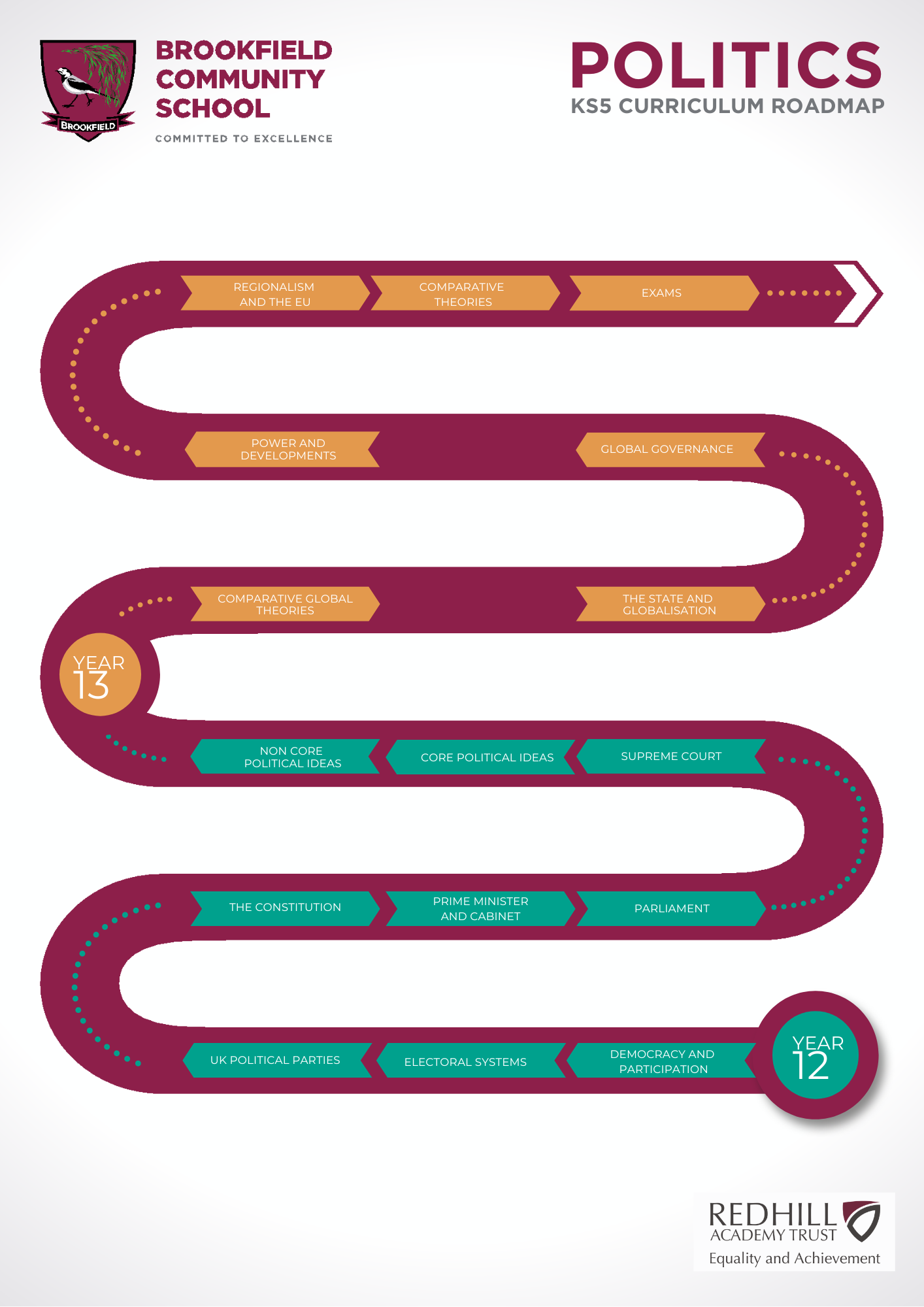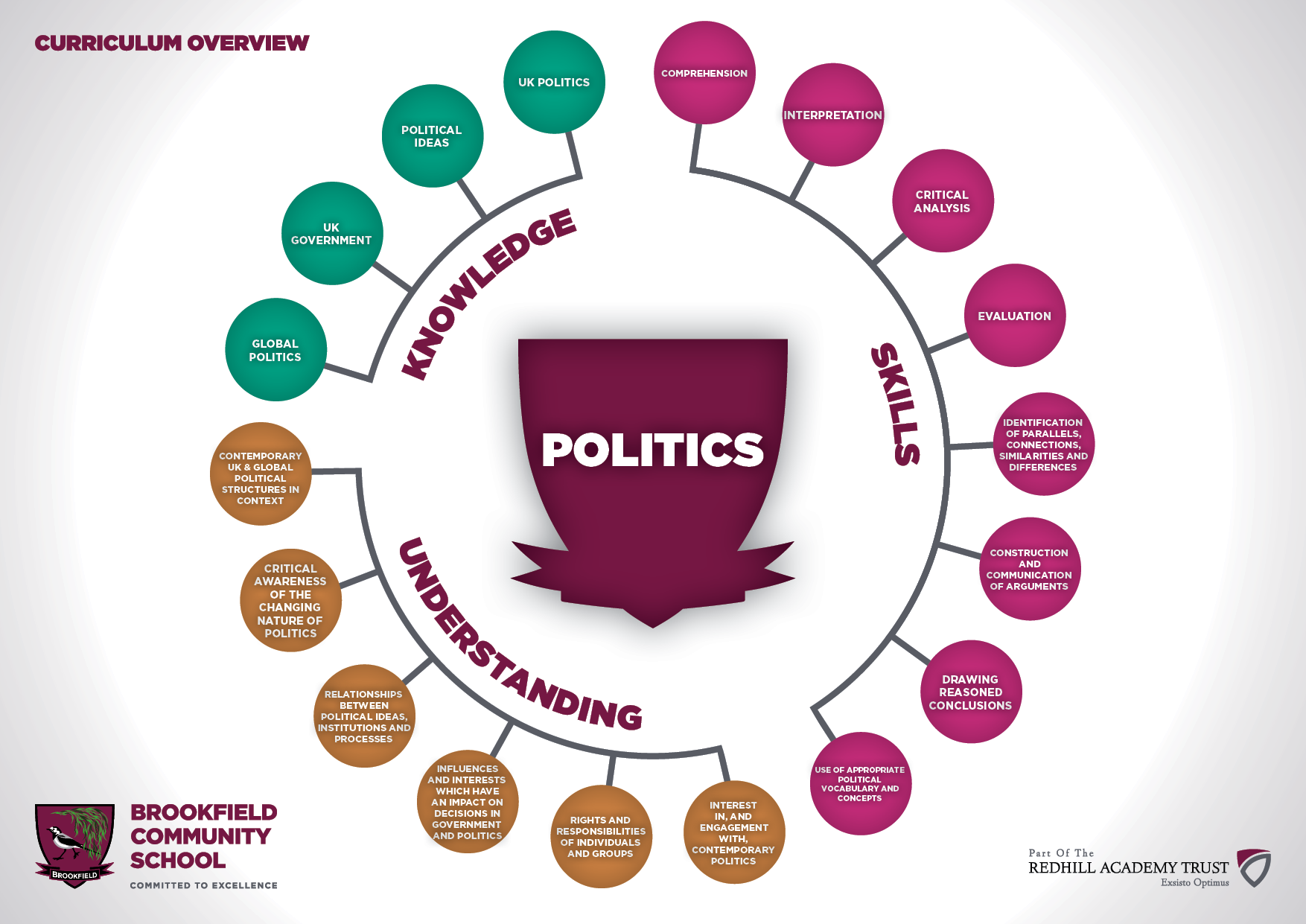Politics
Click image to view full size.
Introduction to Politics
With an incredible series of unexpected and unpredictable events at home and abroad in recent years, the study of Politics has never been more relevant or more fascinating, and it’s a great subject for those with enquiring minds and a desire to find out just what is going on in the world today and why.
A Level Politics involves a lot of discussion, so is ideal for those who enjoy talking and thinking about current affairs. You will also need to keep up-to-date with what is happening in the world via the Internet, newspapers and TV programmes, and will need to engage in independent learning to increase your knowledge of politics past and present.
There is no coursework, but the final exams for Politics are heavily essay based, and you will get a lot of practise in researching and writing answers to sample exam questions.
The aims and objectives of this qualification are to enable students to:
- Develop knowledge and an informed understanding of contemporary political structures and issues in their historical context, both within the United Kingdom (UK) and globally
- Develop a critical awareness of the changing nature of politics and the relationships between political ideas, institutions and processes
- Develop knowledge and an informed understanding of the influences and interests which have an impact on decisions in government and politics
- Develop knowledge and an informed understanding of the rights and responsibilities of individuals and groups
- Develop the ability to critically analyse, interpret and evaluate political information to form arguments and make judgements
- Develop an interest in, and engagement with, contemporary politics.
Key Stage 5
A Level Politics
Exam Board: Edexcel
The Course
- Component 1: UK Politics and Political Ideas
- Political Participation, students will study democracy and participation, political parties, electoral systems, voting behaviour and the media
- Core Political Ideas, students will study conservatism, liberalism and socialism.
- Component 2: UK Government and Political Ideas
- UK Government, students will study the constitution, parliament, Prime Minister and executive, relationships between branches of government
- Non-core political ideas, students will study feminism.
- Component 3: Comparative Politics (Global Politics)
- For Global Politics students will study sovereignty and globalisation, global governance: political and economic, global governance: human rights and environmental, power and developments, regionalism and the European Union, and comparative theories (realism and liberalism).
How are students assessed?
Three written examinations in the Summer Term of Year 2:
- Paper 1 – UK Politics and Core Political Ideas (2 hours; 80 marks; 33% of total)
- Paper 2 – UK Government and Non-core Political Ideas (Feminism) (2 hours; 80 marks; 33% of total)
- Paper 3 – Comparative Politics – Global Politics (2 hours; 80 marks; 33% of total)

Enrichment
- BE Debating Society (meetings held each week and competitions with other Sixth Forms)
- Visit and tour of the Houses of Parliament (London)
- Visit to the People’s History Museum (Manchester)
- Opportunities to meet local MPs and attend national conferences.
Progression Opportunities
Politics is a well regarded A Level which develops many of the skills required for university study, although if you already have a university and course in mind you should check their specific entry requirements before choosing your A Levels.
Politics A Level is not required to study the subject at degree level but many Politics students enjoy the subject so much that they continue their studies at undergraduate level or in related subjects such as International Relations. Some Politics students do in fact go on to work in the political sphere, while other popular career options include law and journalism.


